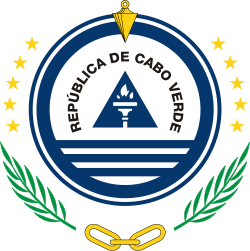7 August 2011 (first round) 21 August 2011 (second round) | |||||||||||||||||
| Registered | 304,621 | ||||||||||||||||
|---|---|---|---|---|---|---|---|---|---|---|---|---|---|---|---|---|---|
| Turnout | 53.50% (first round) 59.87% (second round) | ||||||||||||||||
| |||||||||||||||||
| |||||||||||||||||
 |
|---|
Presidential elections were held in Cape Verde on 7 August 2011, with a second round run-off on 21 August. [1] The result was a victory for Jorge Carlos Fonseca of the Movement for Democracy, who received 54% of the vote in the second round. [1]



